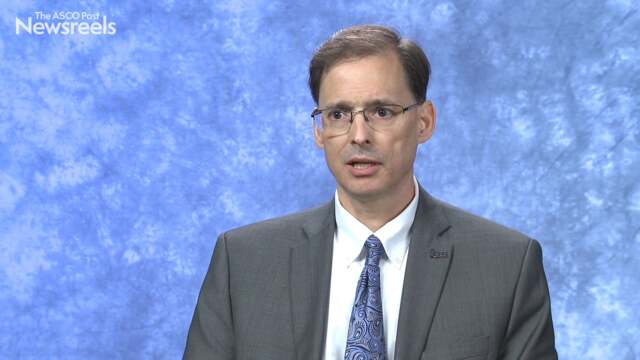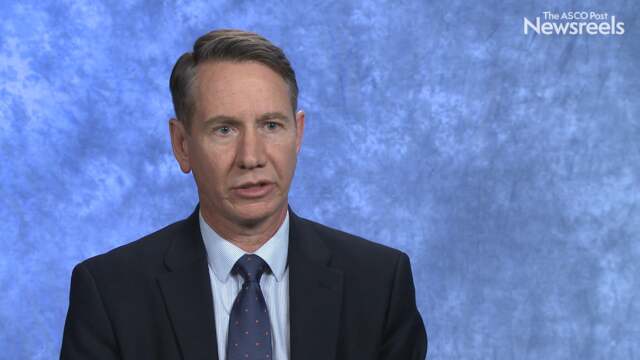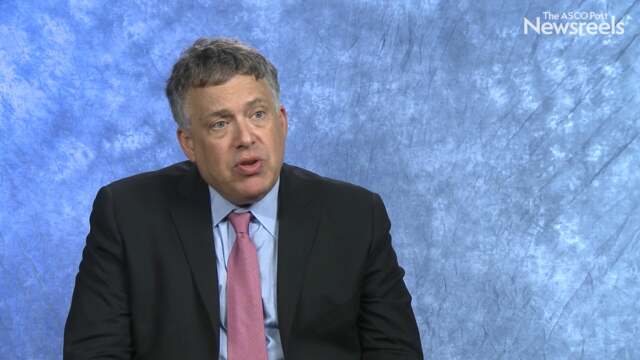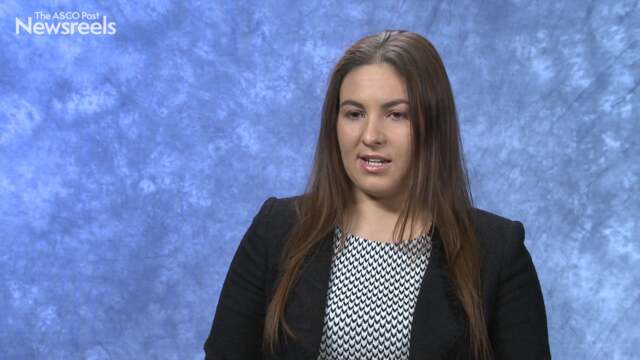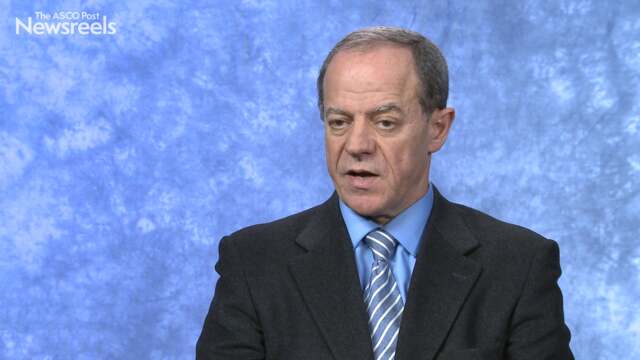Jeffrey M. Lemons, MD, on Solid Tumors: Safety Data on SBRT and Immunotherapy
2018 ASCO-SITC Clinical Immuno-Oncology Symposium
Jeffrey M. Lemons, MD, of the University of Chicago, discusses early safety and efficacy findings from a small study on pembrolizumab and multiorgan-site ablative stereotactic body radiotherapy in patients with advanced solid tumors (Abstract 20).
James L. Gulley, MD, PhD, of the National Cancer Institute, discusses combined treatment approaches showing early evidence of clinical activity: agents such as vaccines or PARP inhibitors that can initiate an immune response, paired with agents such as checkpoint inhibitors that can facilitate the activity of tumor-directed immune cells.
Stephen M. Ansell, MD, PhD, of the Mayo Clinic, discusses integrating immune checkpoint inhibitors, improving efficacy, and reducing toxicity when treating blood cancers.
Roy S. Herbst, MD, PhD, of the Yale School of Medicine, summarizes a session that included discussion of the mechanisms of immunotherapies, biomarkers for activity of these agents, overcoming resistance, and using treatment combinations.
Kristen Fousek, PhD Candidate at Baylor College of Medicine, discusses her preclinical work on targeting CD19-negative relapsed B-cell acute lymphoblastic leukemia, using CAR T cells that target three antigens simultaneously, a technique that addresses the growing problem of relapse (Abstract 121).
Joaquim Bellmunt, MD, PhD, of Dana-Farber Cancer Institute, discusses refining treatment choices with new combinations and sequencing strategies.
